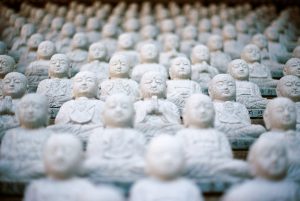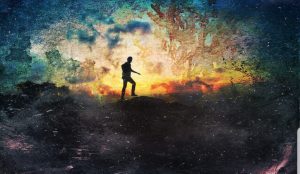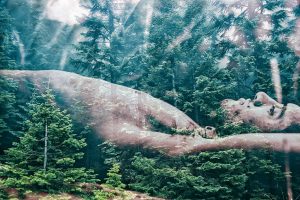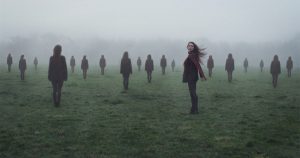 The Yogabliss on-line Moving into Meditation class met this morning. What a joy it is to see each other even while framed in little boxes on a screen! Our sharing time always seems too brief: Each story describing how much we rely on each other: loved ones serving as doctors, grand parents caring for grand children and of course everyone separated from family members and friends. Our guided relaxation was inspired by two naturalists: David Abrams’ writing about our inter-relationship with the sensual world and Boyd Varty ‘s personal struggle with the “old anxiety” that surfaced while on a wilderness retreat. They invite us to slow down, look more intimately at our outer and inner worlds. I highly recommend Boyd’s daily podcast in which he describes his sojourn into solitude.
The Yogabliss on-line Moving into Meditation class met this morning. What a joy it is to see each other even while framed in little boxes on a screen! Our sharing time always seems too brief: Each story describing how much we rely on each other: loved ones serving as doctors, grand parents caring for grand children and of course everyone separated from family members and friends. Our guided relaxation was inspired by two naturalists: David Abrams’ writing about our inter-relationship with the sensual world and Boyd Varty ‘s personal struggle with the “old anxiety” that surfaced while on a wilderness retreat. They invite us to slow down, look more intimately at our outer and inner worlds. I highly recommend Boyd’s daily podcast in which he describes his sojourn into solitude.
Guided Relaxation
Here we are together on another day of being homebound . . . and yet curiously our technology continues to let the world stream into our lives. We’ve surrendered so many of our activities and yet we can still determine how we spend our time. We hope our surrender will lessen the suffering in the world.
 Right now we can imagine the light inside that draws us here . . . the spark that moved us to stillness . . . what is this inner energy that enables us to pause . . . how do you experience this energy, this light that draws you to stillness? Where is it in your body? How does it feel in your heart? What is it saying in your mind?
Right now we can imagine the light inside that draws us here . . . the spark that moved us to stillness . . . what is this inner energy that enables us to pause . . . how do you experience this energy, this light that draws you to stillness? Where is it in your body? How does it feel in your heart? What is it saying in your mind?
It takes a lot of energy to stop doing . . . to enter the stillness – the stillness in which we can tune in to our inner light. In the fullness of time – we may have the opportunity to perceive what is illuminated. What is true for us at this moment in our lives?
When we stop at any time in our lives we are giving ourselves the opportunity to be fully alive. We gift ourselves the time to see, to listen and to feel. We gift ourselves the experience of relationship and wonder in our slower, smaller world. Relationships that call for a deeper engagement . . . a fuller presence.
David Abrams, author of Spell of the Sensuous,” writes:
Humans are tuned for relationships. The eyes, the skin, the tongue, ears, and nostrils—all are gates where our body receives the nourishment of otherness. . . .
 For the largest part of our species’ existence, humans have negotiated relationships with every aspect of the sensuous surroundings, exchanging possibilities with every flapping form, with each textured surface, a shivering entity that we happened to focus upon. All could speak, articulating in gesture and whistle and sigh a shifting web of meanings that we felt on our skin or inhaled through our nostrils or focused with our listening ears . . .
For the largest part of our species’ existence, humans have negotiated relationships with every aspect of the sensuous surroundings, exchanging possibilities with every flapping form, with each textured surface, a shivering entity that we happened to focus upon. All could speak, articulating in gesture and whistle and sigh a shifting web of meanings that we felt on our skin or inhaled through our nostrils or focused with our listening ears . . .
The color of sky, the rush of waves—every aspect of the earthly sensuous could draw us into a relationship . . .And from all of these relationships, our collective sensibilities were nourished.
Perhaps you have begun to experience your senses more vividly on your morning walks or daily gardening . . . . been touched by the sunrise and birdsong on morning walks . . . the nourishment of otherness.
Right now we can imagine the lights glowing in living beings around the planet. All of us living with the knowledge that our lives utterly depend on each other.
Right now we are alone together. We are practicing awareness and compassion that goes beyond the mind . . . we are retreating from the many ways we habitually lived in the world. Our physical environments have gotten smaller . . . and perhaps our hearts and minds have gotten more spacious. As we relinquish old habits and notions of how to live – perhaps our needs have grown smaller. Perhaps what we truly value has emerged more clearly.
 Are we experiencing confinement or spiritual retreat? Wildlife activist and author, Boyd Varty, observes the way we transition from one state to the next many times a day. He is currently on a 40 day solitary retreat living alone in a tree-house on the Londolozi Game Preserve in South Africa. He describes his experience of being “totally overrun” by anxiety, an “old” anxiety that has nothing to do with his current circumstances. He recognizes these deeper feelings emerge in stillness.
Are we experiencing confinement or spiritual retreat? Wildlife activist and author, Boyd Varty, observes the way we transition from one state to the next many times a day. He is currently on a 40 day solitary retreat living alone in a tree-house on the Londolozi Game Preserve in South Africa. He describes his experience of being “totally overrun” by anxiety, an “old” anxiety that has nothing to do with his current circumstances. He recognizes these deeper feelings emerge in stillness.
Right now we are witnessing what happens when we transition from life as we knew it to a different life that we are creating every day. The “transition from community to solitude, from busy to still . . . from distraction to presence.” We have an opportunity to evaluate the many ways we distract ourselves from what is deeper. Boyd suggests:
. . . if you give yourself a moment to think of all the head space that goes into your general appearance and how you present yourself to the world each day . . . well there is none of that . . . then you might think of the time you spend thinking about food, seeing people to eat food, . . . little treats you might have for yourself, . . . patterns of soothing, bonding patterns . . . In solitude those places that are very important but keep us from deeper levels – they totally fall away . . . as a world class distracter I really feel the absence of the things I distract myself into . . . there is something beautiful about it and there is also something quite terrifying . . .
How do we live with our “old anxiety” as it springs to life in response to the uncertainty and stress of today? Boyd describes his experience:
. . . as the anxiety comes up I get anxious about time and I get anxious about being anxious and then judging the anxiety makes me anxious . . .
 . . . thanks to having some of Thich Nhat Hanh’s books here – I spent the day rather than trying to get out of the anxiety with distraction . . . tracking. . . running . . . I simply acknowledged it . . and I allowed it to have its life . . . I took my anxious self and I sat with anxiety and I was kind to it I allowed it to be there and by doing that – it took some time – but slowly through . . . loving kindness meditation . . being kind to myself for being anxious, being kind to the anxiety itself asking it where it came from . . . asking it what it’s trying to show me and just noticing . . .
. . . thanks to having some of Thich Nhat Hanh’s books here – I spent the day rather than trying to get out of the anxiety with distraction . . . tracking. . . running . . . I simply acknowledged it . . and I allowed it to have its life . . . I took my anxious self and I sat with anxiety and I was kind to it I allowed it to be there and by doing that – it took some time – but slowly through . . . loving kindness meditation . . being kind to myself for being anxious, being kind to the anxiety itself asking it where it came from . . . asking it what it’s trying to show me and just noticing . . .
. . . and if there was an insight to the day it was perhaps finding that surrender is asking for more courage than action – surrender is asking for more courage than action.
. . . maybe this is the great gift of all our isolation: for a moment we can actually be still enough to let it all arise in kindness instead of trying to distract ourselves from it. Maybe what we’re being asked for is to just wherever we are on this day we let it be what it is . . .
We – too – can surrender – we can be still enough to let it life experience arise in kindness instead of trying to distract ourselves from it. I bow deeply to the courage of surrender of those many in retreat and the courage of those many who are ministering on the front lines.
